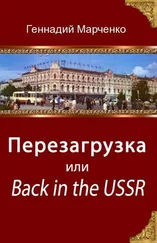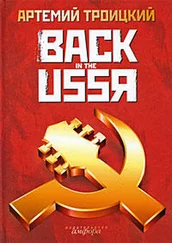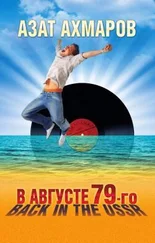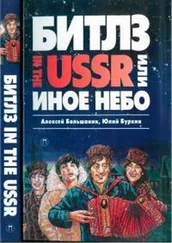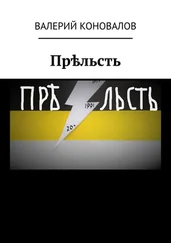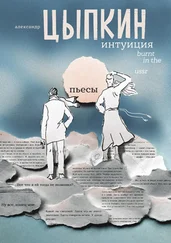I lie awake listening to Uncle Misha snoring beside me. He revolts me. I wonder how he can take advantage of people’s trust and their simple desire to drink. I think about it for a long time before concluding that his crimes are nothing new. People deceived others like that even before the revolution.
* * *
The June dawn breaks at 4am. I awake to find I’ve run out of matches so I go to get a light from the joggers who are already pounding the sand. To my annoyance everyone turns out to be a non-smoker. Damn sportsmen.
I notice an ugly, squint-eyed fellow studying me.
“Got a light, mate?” I ask, “I’ve been looking for one for an hour.”
“I don’t smoke,” but he adds, “I drink, though.”
He picks his jacket off the ground to reveal a bottle of cognac.
“A man after my own heart!” I cry. “Wait five minutes while I get a light. I want a smoke so badly my arse is dizzy!”
“Go ahead. I’ll be here!” he says, pulling his jacket back over the bottle. When I return we silently pass the bottle back and forth between us, each trying to take smaller and smaller mouthfuls. It’s early morning and the shops won’t open for a long time. We introduce ourselves.
“I’m from Kuibyshev.”
“And I’m from Tambov,” he says, although his plastic cap proclaims: I am from Sochi!
“Could you be the Tambov Wolf?”
“I could be. And what’s your name?”
“Hodja Nasreddin.” [31] Tales of a Sufi wise man called Hodja Nasreddin, believed to have lived in the thirteenth century, are part of the folk wisdom of Turkic speaking peoples. In this case Ivan and Tambov Wolf are telling each other that they are vagabonds.
Tambov Wolf laughs. “Oh, Hodja Nasreddin, why do you wear such a high collar on your jacket?”
“To protect my neck from the sun.”
“And if the sun is shining in your face?”
“I turn around and walk in the other direction. Where did you get the cognac?”
“Ask me something easier,” replies Tambov Wolf. He pulls a three-kopeck piece out of his pocket and says, as though pronouncing Newton’s fourth law of physics: “One coin does not clink.”
“And two do not make the right sound.” I produce another coin from my pocket.
“Another eight and we’ll be OK,” he says. I pull all the small change out of my pocket, but he takes only two kopecks from me.
“But you said eight,” I point out.
“Quite right. Two kopecks and six o’clock in the morning make eight.”
The shops open at six. The sun has risen above the horizon so we only have to wait a while longer. However, alcohol is not sold before 11 o’clock. The battle against alcoholism is in full swing and the masses have to be prevented from getting tanked up before work.
At six Tambov Wolf joins the crowd of grandmothers by the shop doors. After a few minutes he emerges and disappears behind the monument to drowned fishermen, signalling for me to follow. We sit down on the nearest bench. From his pocket Tambov Wolf pulls out the sister of the bottle we split earlier and a quarter of a loaf of bread.
“For breakfast,” he says. “Don’t argue, the bread was come by honestly. The bottle I picked up in passing, to give us something to wash it down with.”
“I couldn’t do that,” I say.
“You don’t need to. We have enough.”
When I took to the road I made a pledge that I would never steal or get into a fight. That would keep me out of jail, leaving me free to wander until I grew tired of the life. I soon realised that was naive. Christ himself couldn’t have wandered the USSR unmolested. His attitude, ‘take therefore no thought for the morrow’ would have earned him a year at least, so there was not much hope for the rest of us poor sinners. And sinners we certainly are. We all smoke and curse and most of us drink.
Later Tambov Wolf goes off to steal another bottle, this time from a different shop. We drink it, fall asleep on the beach, and the next day he’s gone.
* * *
“Vanya! Got a ciggie, darling?” The prostitute Vera is sitting on a bench sporting a black eye.
As it happens I have. Vera is in an unusually calm mood. As we sit smoking side by side she begins to talk: “I was a trainee draughtsman before the Komsomol got hold of me. Some activists picked me up by the beach, saying that because my dress buttoned down the front I was obviously a prostitute. They hauled me in. Sentenced me as a Decembrist. I had to clean the toilets in the station. When my fifteen days were up I decided I might as well practise what they thought I did anyway. I certainly make a lot more money this way.”
She finishes her cigarette. “I’ll be off to work now. Thanks for the smoke, love. You tramps are okay.”
“Well you won’t find any moralists among us.”
* * *
It is time I found a place on a farm. I go down to the town’s labour exchange where they direct me to a collective farm about 20 kilometres out of town. I set off in the hot sun and hitch a ride part of the way in a truck. However, it turns out that the farm administration don’t want to take anyone on. I am annoyed at the waste of time. I haven’t had a hair-of-the-dog and my hands are beginning to shake. Not knowing what to do next, I leave the office and look around. There is a lad standing a little way off. Judging by his appearance he’s some sort of tramp like me. He ambles over to where I stand.
“Brother, do you know what time it is?” I ask.
“Five to whatever the fuck you like. You late for work?”
“Work’s not a wolf. It won’t run off into the forest.”
“But I would, given half a chance.”
“What’re you waiting for? Let’s go.”
We set off for the distant forest. On the way we swipe salt and paper napkins from the farm’s dining room. We pull up some young potatoes and pick a few cucumbers from a field on the outskirts of the farm. I don’t regard this as theft. We never take more than what we can eat at one sitting. In private fields we dig into the soil on one side of the potato plants and pull off a few tubers. Then we pack the earth back, knowing that by autumn the plant will yield as many potatoes as its neighbours. Given the tons of fruit and vegetables that rot away in the fields it would be a sin not to take some.
Once we reach the forest we light a fire in a clearing and bake our potatoes. There’s no shortage of kindling in the dense and tangled undergrowth. It is good to sit by the fire. I wonder why I’ve hung around towns for so long. I must have forgotten that you don’t need much in this life.
My companion, whose name is Yura, is not talkative. That suits me. I’m happy just to look into the flames. The potatoes bake quickly. We pull them out and toss them from hand to hand until they cool down. They burn in the mouth but the cucumbers soothe our tongues. I decide not to return to the town.
“Yura, where are you headed?”
“Armavir. Let’s go together.”
“But I can’t walk as fast as you.”
“I’m in no hurry. Summer’s only just begun. Time enough to get there by winter.”
“Let’s go then.”
First we go back to the farm. An old Cossack woman gives us three roubles and a bottle of samogon in return for chopping wood. We ask her for an aluminium mug and a handleless saucepan, and then we take more salt and a glass from the farm’s dining room. In the shop we buy tea, tobacco and matches. Beyond the farm we head east, following the sun. All around us are plantations of apricot and cherry trees. When the day draws to a close we lie down by a stream in a grove of willows and black poplars. We fetch some hay from a field and spread it out for a bed.
Читать дальше
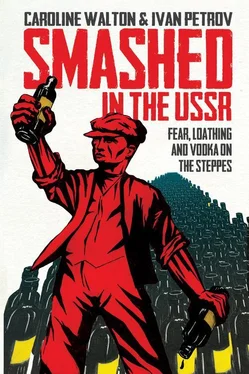
![Геннадий Марченко - Перезагрузка или Back in the Ussr. Книга 1. [СИ]](/books/53319/gennadij-marchenko-perezagruzka-ili-back-in-the-uss-thumb.webp)
